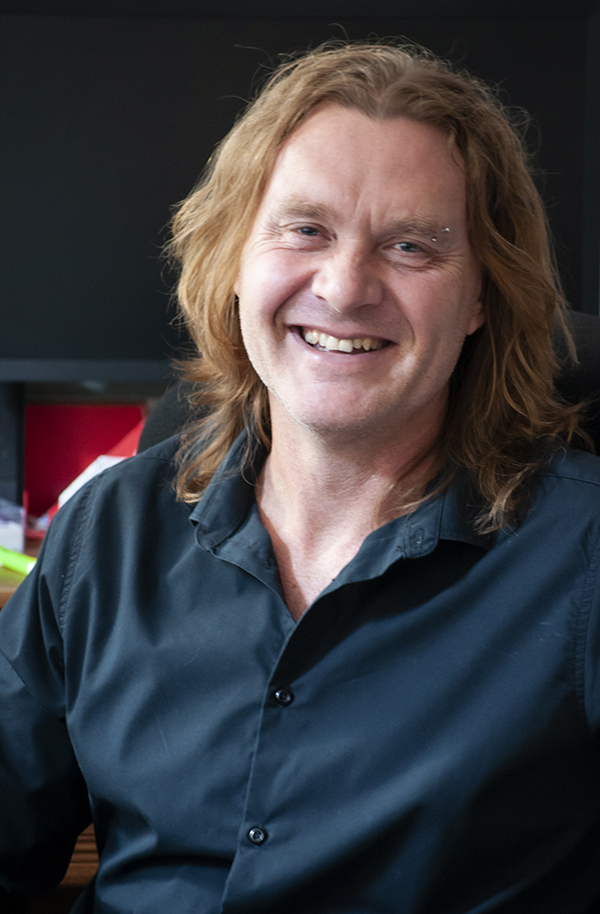The academic world can easily be infiltrated by dishonesty and plagiarism, especially in trying times such as the past two years of the Covid-19 pandemic. Good academic practice is essential for lecturers and students.
Prof Anné Verhoef, director of the School of Philosophy at the North-West University (NWU), is an avid campaigner for academic integrity and has centred his research on establishing a Community of Practice for Academic Integrity (CoPAI).
He has been collaborating with integrity specialists and work teams across the university to establish a CoPAI and document the student experience of academic integrity and honesty at the NWU. Among the specialists and teams are Dr Mariëtte Fourie, Quality Manager: Academic Programmes at the NWU’s Quality Enhancement Office, teams from the NWU’s faculties and Student Judicial Services, as well as Dr Yolandi Coetser, senior lecturer in the School of Philosophy.
“Although good research about academic integrity is available in the online environment, the Covid-19 pandemic made the management of academic integrity difficult. The research we do and the projects we launch in this regard at the NWU are unique and groundbreaking, not only locally but also internationally. Our work offers many possibilities to make an impact on the management of academic integrity by higher-education institutions worldwide,” says Prof Verhoef.
A first for South Africa
The NWU was one of the first universities in South Africa to do research about academic integrity in the teaching and learning environment during the pandemic.
This research led to three research outputs. “Firstly, we gave a presentation about the CoPAI in Portugal at the European Network for Academic Integrity at the beginning of 2022. After experiencing their enthusiasm about CoPAI, we realised that international universities share this need to develop their own CoPAIs.”
The second output was an article Prof Verhoef and Dr Coetser wrote for Transformation in Higher Education. This article has now been quoted more than 14 times in just a few months, demonstrating that the research is receiving international recognition and making an impact.
An article was also published in the International Journal for Educational Integrity in Canada about the NWU’s CoPAI. This led to the United Nations Educational, Scientific and Cultural Organisation (UNESCO) asking Prof Verhoef to write a blogpost for their International Institute for Education Planning (ETICO) and give advice to other universities on how they can establish the same practices.
Why collaboration is so crucial
He says the CoPAI was the result of two developments. The first was that academic integrity became an urgent matter with the sudden move to online teaching, learning and assessment in 2020. The second development was the prominence academic integrity gained after the annual NWU forum in May 2021 when staff realised the need for a collaborative and integrated approach to academic integrity.
This further led to regular forums where lecturers and students could share their experiences, ask for advice and recommend best practices. Various international speakers also contributed to these forums.
Since its inception, the CoPAI has included representatives from all programmes, faculties and departments of the NWU.
How does the CoPAI function?
Participation in the CoPAI is voluntary. Participants share best practices, create and share knowledge in the form of research and practical teaching and learning outputs, and foster national and international collaboration on academic integrity. All this supports the establishment of a CoPAI identity at the NWU.
“The NWU CoPAI contributed in several ways to enhancing academic integrity at the NWU and enabled us to identify some of the most crucial needs for further enhancing academic integrity.”
What lies ahead?
The next big project will be to fully develop a standard operating procedure (SOP) for teaching and learning. “This is already at an advanced stage, has served before the NWU’s Senate and was returned to the faculties for further input.”
Prof Verhoef says there are many research possibilities stemming from this. “We established that other universities do not have integrated systems or procedures for the management of academic integrity in teaching and learning, although some have systems in the research environment.”
The NWU is currently developing the SOP together with educational material and the computer systems to support it. This will be a pilot project early next year at the Faculty of Law, the School for Professional Studies at the Faculty of Education and the School for Computer Sciences and Information Systems.
“We foresee that this will lead to more research outputs and possibly a book, as well as international collaboration.”
Read the articles here:

Prof Anné Verhoef
